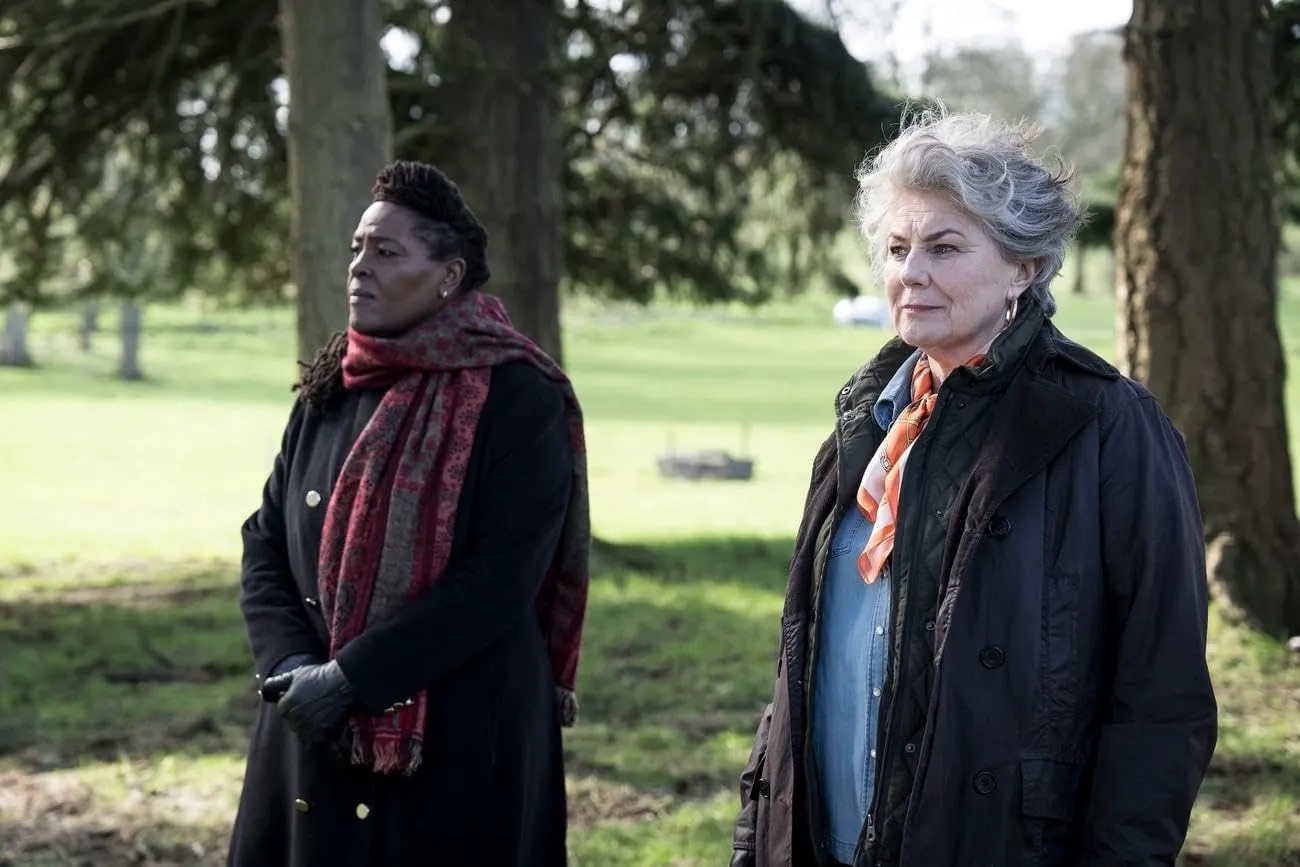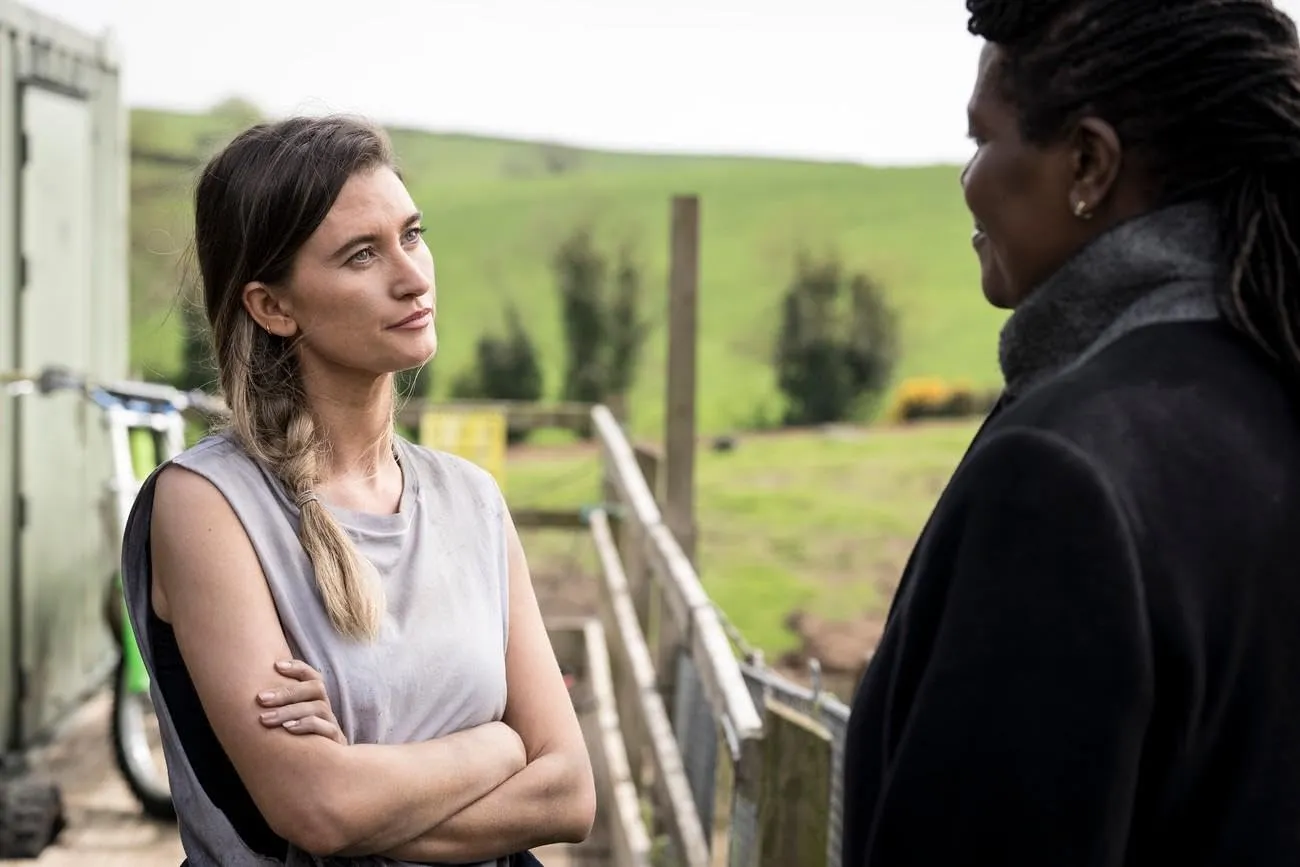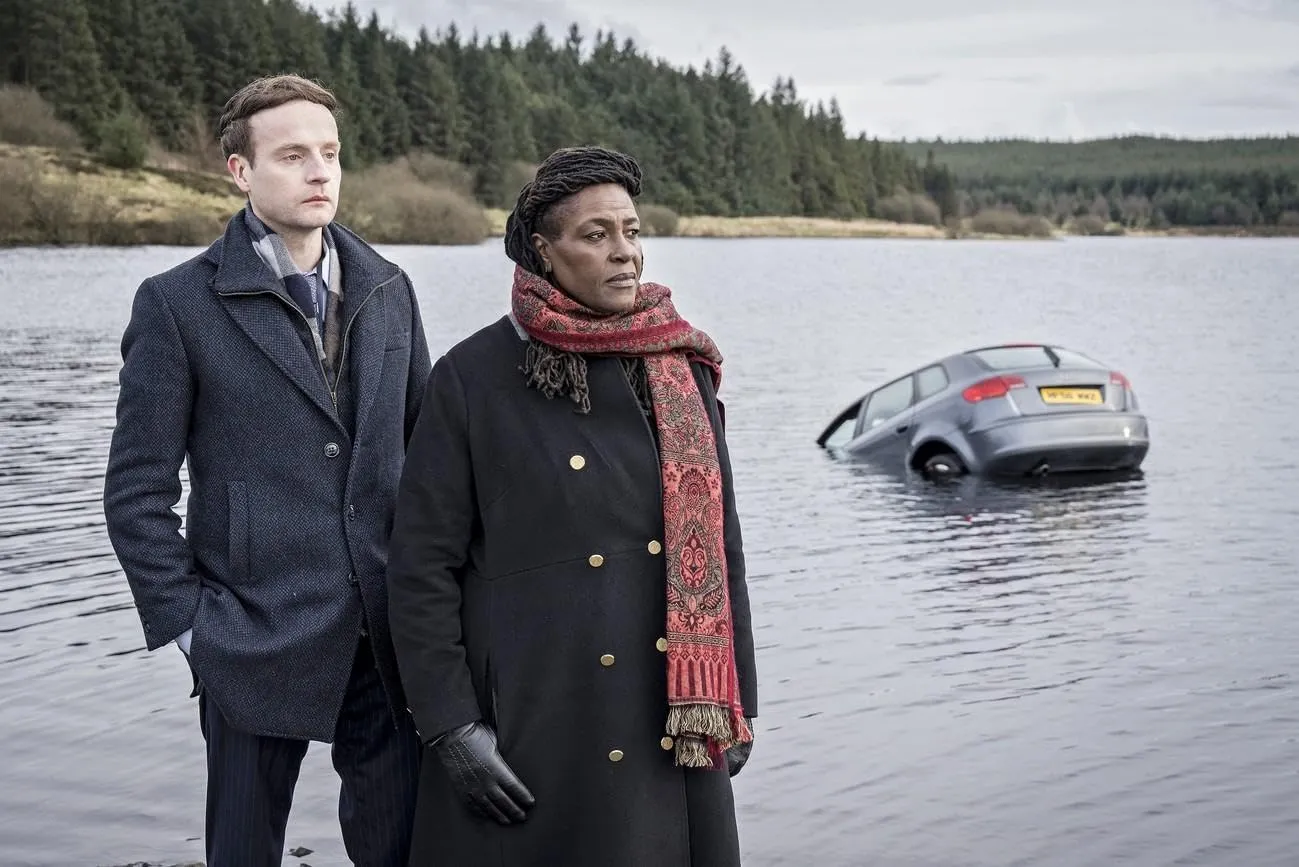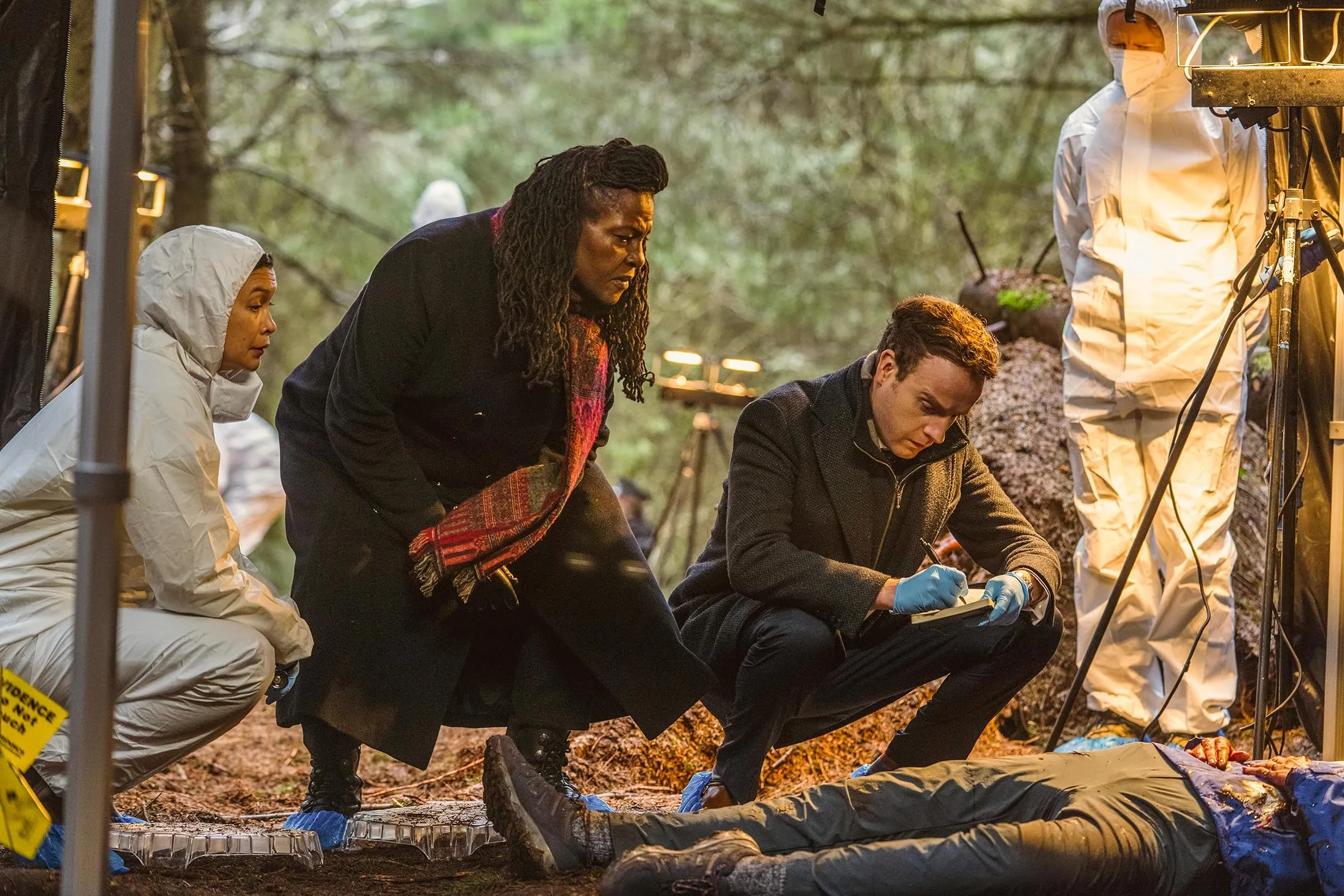Step into the shoes of DCI Sharon D. Clarke as she takes on her newest role, Inspector Ellis. This police procedural drama follows Ellis, a detective chief inspector who lends her expertise to cases small-town police can’t crack. As an outside investigator parachuted in to assess troublesome situations, Ellis ruffles feathers. But her skills can’t be denied.
Bringing a quiet, focused intensity to each investigation, Ellis navigates not just mysteries but also the prejudices that come with being a black female officer. When prejudice shuts some doors, her perspicacity opens others. Through it all, Ellis’ allegiance remains firmly with justice.
In the opening episodes, Ellis finds herself assisting officers in a rural district where a swimming champion’s death and his girlfriend’s disappearance plunge a community into unease. As Ellis quietly yet doggedly examines this tangled case, she also probes the biases within the force she’s joined. Issues of racism and sexism are tackled, but never at the expense of the story’s absorbing core—what truly happened to the missing couple, and can Ellis unravel the truth?
Steely yet hinting at private pains, Ellis commits fully to each new assignment. And with thought-provoking themes woven into classic crime genre style, this series promises to keep viewers thoroughly engaged while reflecting on important real-world topics.
The Quiet Force of DCI Ellis
DCI Sharon D. Clarke’s Ellis sets herself apart through reserved intensity. Always focused on the job, she gives little else away. Yet that composure holds intrigue, hinting at turbulence beneath the surface. Ellis Clarke excels at expressing much through measured movements and hushed tones.
Steely resolve and precision characterize Ellis’ work. Prejudices threaten to undermine her authority, but respect comes through results. Subtle racism emerges as she joins a new squad, though Ellis remains undaunted. Duty drives her to see justice done.
Peers struggle to grasp this enigmatic figure. Cool professionalism leaves them at arm’s length. Only muted traces of empathy slip through, like comforting a victim’s child. Elsewhere, piercing eyes convey shrewd assessment over small expressions.
Cracks potentially emerge through rumored “gardening leave” and solitude at the case’s end. Her unreachable daughter remains an open wound. Then again, perhaps such private turmoil fuels steely composure. An air of loss lingers, though Ellis stays focused ahead.
Maintaining mystery protects vulnerability, yet also commands respect. Her powers of perception alone justify Ellis’ role. As long as prejudice persists, assertive women must tread careful lines to thrive. Through it all, this quiet force lets diligent work speak loudest of her merit.
Beyond Ellis
Of course, no detective works alone. Ellis receives support from an intriguing pair of partners—one a steadfast ally, the other embodying maddening opposition.
DS Chet Harper proves the ideal foil for solemn Ellis. Played engagingly by Andrew Gower, Harper shows unbridled enthusiasm for the detective’s guarded ways. Their rapport grows delicately as Harper gains Ellis’ respect. His genuine support offsets others’ prejudice, invaluable as outside pressures mount.
In contrast stands DCI Belmont, the former top cop unwilling to yield control. As played by Chris Reilly, Belmont radiates smug arrogance and racist bias. He resents Ellis’ expertise, desperately grasping at power. Their clashes poke needed focus on such unvarnished discrimination within the force.
Beyond these central supporting roles, one wishes for depth among the townsfolk embroiled in each case. Flashes hint at lives cribbed by loss or secrets, yet the script relegates many to blurred backgrounds. Viewers struggle to feel invested where character shines lacking.
Still, Gower injects life through Harper’s earnest spirit. And Reilly ensures facing prejudice remains no simple story of “good guys” alone. Together they provide vital texture, even if others fade at times into less vivid silhouettes. With development, all characters could resonate and augment Ellis’ evolving presence at their core.
Room for Deeper Understanding
Ellis tackles weighty issues of discrimination, yet the portrayal feels briefly skimmed. The racism and sexism confronting the title character offer ample material to probe society’s ongoing biases and their toxic effects.
Early scenes plainly signal prejudice through hostile colleagues’ veiled comments. But characters remain shallow cutsouts, and issues touch only the surface. Preconceptions based on gender and skin color deserve examination far richer. Real people live multi-faceted lives that cannot be summed up in a grimace or sneer.
Direct clashes manage tension’s short-term thrill yet undermine the stories’ staying power. Subtlety granting humanity even to reprehensible figures can spread understanding. Viewers thoughtful beyond an episode exit may reflect more deeply on ignorance’s roots and how to nurture empathy.
Too often, dramas raise societal wounds solely to pull predictable heartstrings. But meaningful progress emerges from recognition of shared hopes beneath visible divisions. With care, Ellis could have found common ground even with repugnant personalities, hinting all may evolve.
Its aim to showcase biases merits praise. But impacts fade unless mirrors held up reveal reflection, not mere caricature. With deftertouch, this series may have kept audiences engaged through characters navigating life’s messy nuances, not cut-and-dry ‘justice.’ Deeper portraits stay with us long after credits roll.
Potential remained to inspire through complex individuals, not one-note archetypes. Greater subtlety might have left food for thought lingering kindly in minds open to growth.
Delving Deeper into the Details
The first outing for DCI Ellis plunged viewers straight into an inhospitable hunt. A swimming star lay dead; his lover vanished without explanation in their small district community. Ellis wasted no time piecing together clues or interrogating nervous locals seeking answers.
Stakes seemed high from the jump as our stoic detective raced against the clock. But was the mystery truly the main draw, or merely a quick means to introduce players who then deserved longer in the spotlight? Resolution arrived abrupt, satisfying urgency but skipping character nuances important to forming attachments.
Future cases might thrive, granting all pieces room to shine. Pacing dragged at times in these opening hours without a solid foundation of motivations and personalities established first. Puzzles alone entice only so far without fully rounded figures to root for or against.
Delving deeper into what drives this cast beyond surface behaviors could strengthen future stories while maintaining suspense. Slowing to immerse in personal mysteries intertwined with core criminal conundrums may better engage those drifting during lulls.
With colorful characters and pressing plots as consistent companions rather than fleeting allies, Ellis seems poised to maintain intrigue through richer character arcs matched to the meticulous crime solving at her core. Finding balance will be key to keeping audiences invested in both procedure and people.
Bringing the characters to life
Beneath the Surface delves into how performances shaped these opening hours of Ellis. From the first, Sharon D. Clarke arrests attention as our intrepid detective. Subtle, intricate work breathes life into a figure at once enigmatic and principled. Beyond lines, Clarke infuses Ellis with inner complexities through poised gestures and hushed tones.
Lifelike characters emerge too through skilled supporting talents. Andrew Gower finds nuance in Harper, lifting clichés with humor and empathy. Chris Reilly ensures prejudice feels grounded in human fallibility rather than caricature. Around them, cast and crew transport audiences to a rural world where mysteries unfold.
Crisp cinematography frames each revelation gorgeously. Musical scores rise and fall with delicate timing. Yet for all production polish, it was scripts providing too little meat for talents’ teeth. More robust roles next time might allow fuller blossoming.
For now, artistic craft carries early episodes impressively. Sweeping vistas immerse us in cases while concentrating attention where our detective’s intent lies. Performances inject humanity into characters, sometimes two-dimensional on paper. Through such work, glimpses of Ellis’ potential shine brightly enough to keep viewers watching on in hope of richer rewards just over the next scenic hills.
Room for Growth and Possibilities
The debut outing for Ellis hinted at depths left to plumb. Complex social themes aroused interest, even if touched on merely skin-deep. Rushed resolutions and thin characters hindered immersion in its opening mystery.
Yet promise lingers in seeds sown. Future hours may see fuller blossoming if affording more space to explore troubling biases confronted and dimensional people confronting them. Subtlety versus melodrama could better sustain thoughtfulness long after final scenes.
Continued patience may be rewarded as finding footing. Great stories evolve gradually. Further episodes may strengthen pacing by balancing suspense and insights into what drives intriguing figures on both sides of the law.
Always, potential remains for inspiring thought through nuanced tales. Even early stumbling blocks seem due more to sprinting starts than lack of merit. And anywhere outstanding acting spreads light, hope shines for enriching drama and discussion.
Keeping receptive minds open allows series room to grow into its strengths. Not dismissing after limited pictures avoids squandering possibilities barely peeked. Deeper layers may yet emerge for those invested and curious enough to look.
The Review
Ellis
While its opening hour showed room for improvement, Ellis hints at engaging storytelling that could tackle thought-provoking themes with intriguing characters. Strong performances and adept production give hope future episodes may develop promising seeds into a captivating whole worth viewing.
PROS
- Complex, compelling lead performance from Sharon D. Clarke
- Engaging premise exploring social issues through crime drama genre
- Strong production values transport viewers to rural settings.
- Hints of depth to characters and themes left to further develop
CONS
- Underdeveloped supporting characters in the first episode
- Rushed resolution without satisfying character arcs
- Pacing dragged without investment in motivations and backstories
- The direct approach to addressing discrimination lacked nuance.
- Potential for deeper exploration of issues was not fully realized.


















































